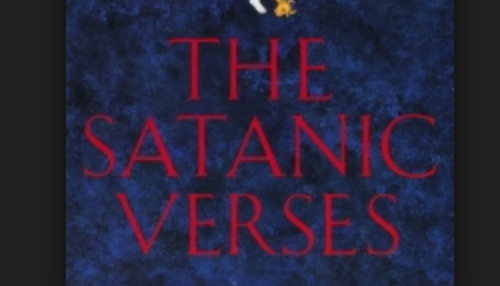This is a guest post by amie
If you are interested in an account of a civilised debate offering divergent views on the issue of libel tourism, I can offer my post of this event last year.
If you prefer a more colourful approach, peppered with sniping at Americans generally and which involves frequent dark but seemingly gratuitous invocations of Richarld Perle, I can offer Lord Lenny Hoffman’s address last week.
Nick Cohen’s counterblast is here:
I warned during the rage against Blair and Bush that liberals were playing into the hands of reactionaries. Unintentionally or not, their depiction of a desire to democratise the Middle East as a neocon swindle provided every apologist for tyranny and censorship with the argument that liberty was a merely a plot by a cabal bent on world domination. Last week, the august figure of Lord Hoffmann made my point for me.
In his Dame Ann Ebsworth memorial lecture, the retired law lord had the establishment audience purring with approval when he dismissed the international clamour against our libel laws as a neocon scam. The determination of American legislators to make English libel verdicts unenforceable in the US was not a result of legitimate concern about a law used by the super-rich, but had been manufactured by an American right-winger, Rachel Ehrenfeld, after she lost a libel case brought by Khalid bin Mahfouz.
The transcript of the lecture does not do justice to the live speech. Last year I heard the solicitor who acted for Mahfouz in his action against Ehrenfeld present his argument in a measured way. I was looking forward to hearing a keen forensic analysis from Lord Hoffman. He did indeed highlight some serious anomalies in the new US legislation, and made a reasoned case for English law. However, I was taken aback at the anti American animus and terms of reference that left me with the incongruous sensation of being transported from the august chamber of the Inner Temple to a shabby hall somewhere in SWP – land.
The learned audience tittered appreciatively at every gibe – no longer an obligation, as Lord Hoffman has now retired from the bench. He repeatedly linked both Ehrenfeld and Prof Wedgwood (the US representative on the UN Human Rights Committee which rapped the UK on the knuckles for its libel laws) to Richard Perle, and got a special titter for:
“In matters of libel, at least, Professor Wedgwood appears to share Richard Perle’s vision of American exceptionalism.”
This is because the Committee proposed that the UK “consider the utility of a so-called “public figure” exception, requiring proof by the plaintiff of actual malice“ while, as Hoffman pointed out, the USA is the only common law country to adopt this NYT v Sullivan approach.
Hoffman outlines the events of the 60s civil rights struggle which led to Sullivan and confidently asserts:
“The social conditions [the Civil Rights struggle] which gave rise to the rule have long passed away and it has not escaped both scholarly and judicial criticism, even in the United States, although this has tended to be drowned out by the approval which it naturally receives from the media.”
It is true that other common law countries have not adopted a test that is on all fours with Sullivan, but its importance in informing the laws of these countries is widely acknowledged.
And here is Ronald Dworkin, as much respected in UK jurisprudence as he is in the USA:
“The United States stands alone even among democracies, in the extraordinary degree to which the Constitution protects the freedom of speech and of the press…”
Dworkin points out that without Sullivan, it would not have been possible to have the Watergate revelations. In fact, his critique is that Sullilvan does not go far enough.
Is Lord Hoffman as ready to toss the gibe of “exceptionalism” at Dworkin, who as far as I can tell, has no connection with that Lord of Darkness, Richard Perle?
Which brings me neatly to one of the advocates of the abolition of Sullivan: John Dean, ex convict, of Watergate notoriety. Would Lord Hoffman appreciate it if I made dark connections between him and Dean? (In fact, Dean makes a good case against the anomalies which the developments from Sullivan have thrown up regarding who is a public figure).
Dean mentions the fact that Supreme Court Justice Scalia is another severe critic of Sullivan, and is reported as having declared his wish to strike it down altogether. Would Hoffman, the nemesis of Pinochet (how we cheered, and how we decried the need for a rehearing because of his connections with Amnesty) be pleased to be a bedfellow with Scalia? This is the Justice who has been supportive of the presidential power to detain alleged terrorism suspects and the suspension of habeas corpus. This is the Justice who refused to recuse himself from a case on Guantanamo after saying
“Give me a break … I had a son on that battlefield and they were shooting at my son, and I’m not about to give this man who was captured in a war a full jury trial. I mean it’s crazy.”
Of course such linkage would be a spurious ploy , but then so, surely, is the “join -the- dots with Richard Perle” gambit.
As for Lord Hoffman’s brisk dispensation of Sullivan because the social conditions no longer prevail, this may no doubt find expression somewhere in the Stateside debate, but as starkly presented here by Hoffman, it rides roughshod over a rich and complex jurisprudence which provides the underlying matrix for the enduring application of the principles of Sullivan.
Is not Lord Hoffman’s dismissal a little cavalier; dare I suggest, even, a presumptuous, simplistic pronouncement by a non American?
As an aside, I agree that Eherenfeld’s election not to defend herself before the English courts is problematical. To Hoffman’s speculation that she may have realised the weakness of her case, I would only refer to Anthony Julius’ suggestion at last year’s debate that, had he continued to represent her, he would have advised her to conduct a full defence.
But the pronouncement which for me is the biggest indictment against Lord Hoffman as champion of human rights and democracy remains this.
Lord Hoffman finds Index on Censorship’s proposal to cap libel damages at £10,000 “silly”. Libel damages, he explains, are not compensatory like other civil damages, but have to do the criminal law’s job of acting as a deterrent (or punishment?). Such a paltry amount, he says, would be no deterrent for your “modern tabloid editor.”
It is staggering that this champion of the rights of the little person appears to limit the arena of free speech to the wealthy barons of the news print Empires.
Of the vast sweep of democratic discourse pulsing across the world of blogs and twitter, be it in the UK or Iran, there is Lordly disregard. The voice of the lone or small group blogger, enabled often by a principled but modestly resourced web host, for whom £10,000 could spell ruin and silence, is loftily consigned to the dustbin not of history, but of the future of free speech in the digital age.


